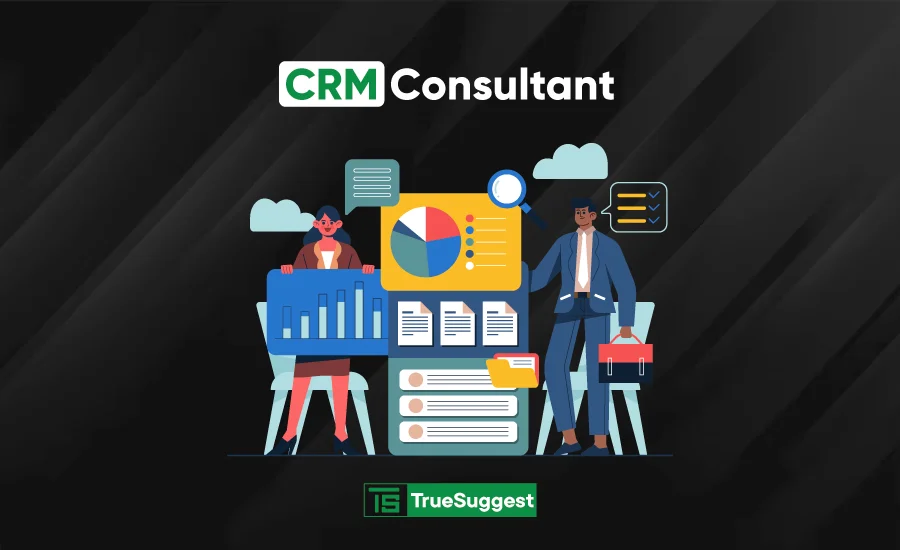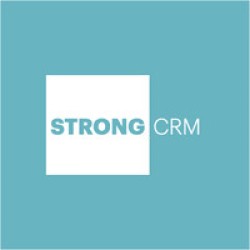What is a CRM Consultant

A CRM (Customer Relationship Management) consultant is a professional who specializes in the implementation, customization, and optimization of CRM systems. These experts help businesses manage their interactions with current and potential customers by leveraging CRM software to streamline processes, enhance customer service, and boost sales. CRM consultants work closely with organizations to understand their unique needs and tailor CRM solutions accordingly, ensuring the system aligns with business objectives and drives growth.
In today's competitive market, a well-implemented CRM system can be a game-changer, making the expertise of a CRM consultant invaluable. These professionals not only provide technical know-how but also offer strategic guidance, helping companies maximize the return on their CRM investment and achieve long-term success.
What Is a CRM System?
A CRM (Customer Relationship Management) system is a software solution designed to manage a company’s interactions with current and potential customers. It centralizes customer information, streamlines processes, and improves customer service, sales, and marketing efforts. By providing a comprehensive view of customer interactions, CRM systems enable businesses to build stronger relationships, increase customer satisfaction, and drive sales growth. Key features often include contact management, sales tracking, customer support, and analytics, making it an essential tool for businesses of all sizes.
4 Types of CRM Consultants
The role of a CRM consultant encompasses a range of activities, including needs assessment, system selection, data migration, user training, and ongoing support. They often collaborate with different departments within a company, such as sales, marketing, and customer service, to ensure the CRM system is effectively integrated and utilized across the organization.
By doing so, they help businesses improve customer retention, increase efficiency, and gain valuable insights from customer data.
1. Implementation Consultants
Implementation consultants are responsible for setting up and configuring CRM systems based on a company's specific requirements. They handle tasks such as system installation, data migration, and initial customization. Their goal is to ensure that the CRM system is seamlessly integrated into the existing business infrastructure. These consultants often collaborate with IT teams to troubleshoot technical issues and provide solutions that align with business processes. Their expertise in various CRM platforms, such as Salesforce, HubSpot, or Microsoft Dynamics, allows them to tailor the system to meet the unique needs of the business.
2. Strategic Consultants
Strategic CRM consultants focus on aligning the CRM system with the company’s overall business strategy. They conduct in-depth analyses to understand the organization's goals, customer base, and market dynamics. Based on this information, they develop a CRM strategy that supports business objectives, such as improving customer retention, enhancing sales processes, or optimizing marketing campaigns.
These consultants often work closely with senior management to ensure that the CRM strategy is integrated into the broader business plan.
Their strategic insights help businesses leverage CRM data to drive growth and achieve long-term success.
3. Functional Consultants
Functional CRM consultants specialize in the specific functionalities and features of CRM systems. They provide expertise in areas such as sales automation, customer service management, marketing automation, and analytics. These consultants work with different departments within a company to ensure that the CRM system supports their specific needs. For example, they might help the sales team streamline their pipeline management or assist the marketing team in automating their campaigns.
By focusing on specific functionalities, these consultants ensure that the CRM system is effectively utilized across the organization.
4. Technical Consultants
Technical CRM consultants possess deep technical knowledge of CRM systems and are responsible for advanced customization and integration tasks. They handle complex technical requirements, such as integrating the CRM system with other business applications, developing custom modules, or creating specialized reports. These consultants often have a background in software development and are proficient in programming languages and CRM platforms' APIs.
Their technical expertise ensures that the CRM system is not only functional but also scalable and adaptable to evolving business needs. They play a critical role in maintaining the system's performance and security.
Benefits of a CRM Consultant
1. System Implementation
CRM consultants bring expertise in setting up and configuring CRM systems tailored to an organization's unique needs. They ensure a smooth and efficient implementation process, minimizing disruptions to daily operations. By managing data migration, customizing the system, and providing user training, consultants help businesses achieve a seamless transition. This expertise reduces the risk of errors and ensures that the CRM system is fully functional from day one.
2. Improved User Adoption
One of the primary challenges with CRM systems is ensuring that employees fully utilize the platform. CRM consultants provide comprehensive training and support to ensure that all users are comfortable and proficient with the system. They create user-friendly interfaces, develop training materials, and offer ongoing support to address any issues. This focus on user adoption increases the likelihood of successful CRM implementation and maximizes the return on investment.
3. Strategic Alignment
CRM consultants help businesses align their CRM strategy with their overall business goals. They conduct thorough analyses to understand the company’s objectives, customer base, and market dynamics. Based on this information, they develop a CRM strategy that supports business objectives such as improving customer retention, enhancing sales processes, or optimizing marketing campaigns. This strategic alignment ensures that the CRM system is not just a tool but a critical component of the business strategy.
4. Customization and Scalability
Every business has unique needs, and a one-size-fits-all CRM solution is rarely effective. CRM consultants specialize in customizing CRM systems to meet specific business requirements. They configure workflows, develop custom modules, and integrate third-party applications to ensure that the CRM system supports the organization’s processes. This customization ensures that the system is scalable and can evolve with the business, accommodating growth and changing needs.
5. Data Management
CRM consultants help businesses manage their customer data more effectively. They ensure that data is accurately captured, stored, and organized within the CRM system. By implementing best practices for data management, consultants help businesses maintain clean and up-to-date customer records. This enhanced data management provides valuable insights into customer behavior, preferences, and trends, enabling businesses to make informed decisions and develop targeted marketing strategies.
6. Increased Efficiency and Productivity
CRM systems streamline processes and automate routine tasks, increasing efficiency and productivity. CRM consultants identify areas where automation can be implemented, such as sales pipeline management, customer service workflows, and marketing campaigns.
By automating these tasks, businesses can save time and resources, allowing employees to focus on more strategic activities. This increased efficiency leads to improved customer service, faster response times, and ultimately, higher customer satisfaction.
7. Better Customer Insights
A well-implemented CRM system provides valuable insights into customer behavior, preferences, and trends.
CRM consultants help businesses leverage these insights to develop targeted marketing campaigns, personalized customer experiences, and effective sales strategies.
By analyzing customer data, businesses can identify opportunities for cross-selling and upselling, improve customer segmentation, and develop loyalty programs.
These insights enable businesses to build stronger relationships with their customers and drive revenue growth.
8. Ongoing Support and Maintenance
CRM systems require ongoing support and maintenance to ensure optimal performance. CRM consultants provide continuous support to address any technical issues, perform system updates, and implement new features. This ongoing support ensures that the CRM system remains up-to-date and fully functional, minimizing downtime and disruptions.
Consultants also monitor system performance and security, ensuring that the CRM system is reliable and secure.
9. Competitive Advantage
By leveraging the expertise of CRM consultants, businesses can gain a competitive advantage in the market. A well-implemented CRM system enables businesses to provide superior customer service, develop targeted marketing campaigns, and improve sales processes. These capabilities allow businesses to differentiate themselves from competitors and build strong, lasting relationships with their customers. CRM consultants help businesses stay ahead of the competition by continuously optimizing the CRM system and adapting to changing market conditions.
10. Cost Savings
While hiring a CRM consultant involves an upfront investment, the long-term cost savings can be significant. CRM consultants help businesses avoid costly mistakes during the implementation process, reduce the risk of system failures, and ensure that the CRM system is fully utilized. By improving efficiency, productivity, and customer satisfaction, businesses can achieve a higher return on their CRM investment.
CRM consultants help businesses identify cost-saving opportunities, such as automating manual tasks and optimizing workflows.
Conclusion
Hiring a CRM consultant offers numerous benefits, from ensuring a smooth implementation process to providing ongoing support and optimization. These professionals bring valuable expertise and insights that help businesses maximize the potential of their CRM systems.
By aligning the CRM strategy with business goals, customizing the system to meet specific needs, and leveraging customer data for informed decision-making, CRM consultants enable businesses to achieve long-term success and gain a competitive edge in the market






























